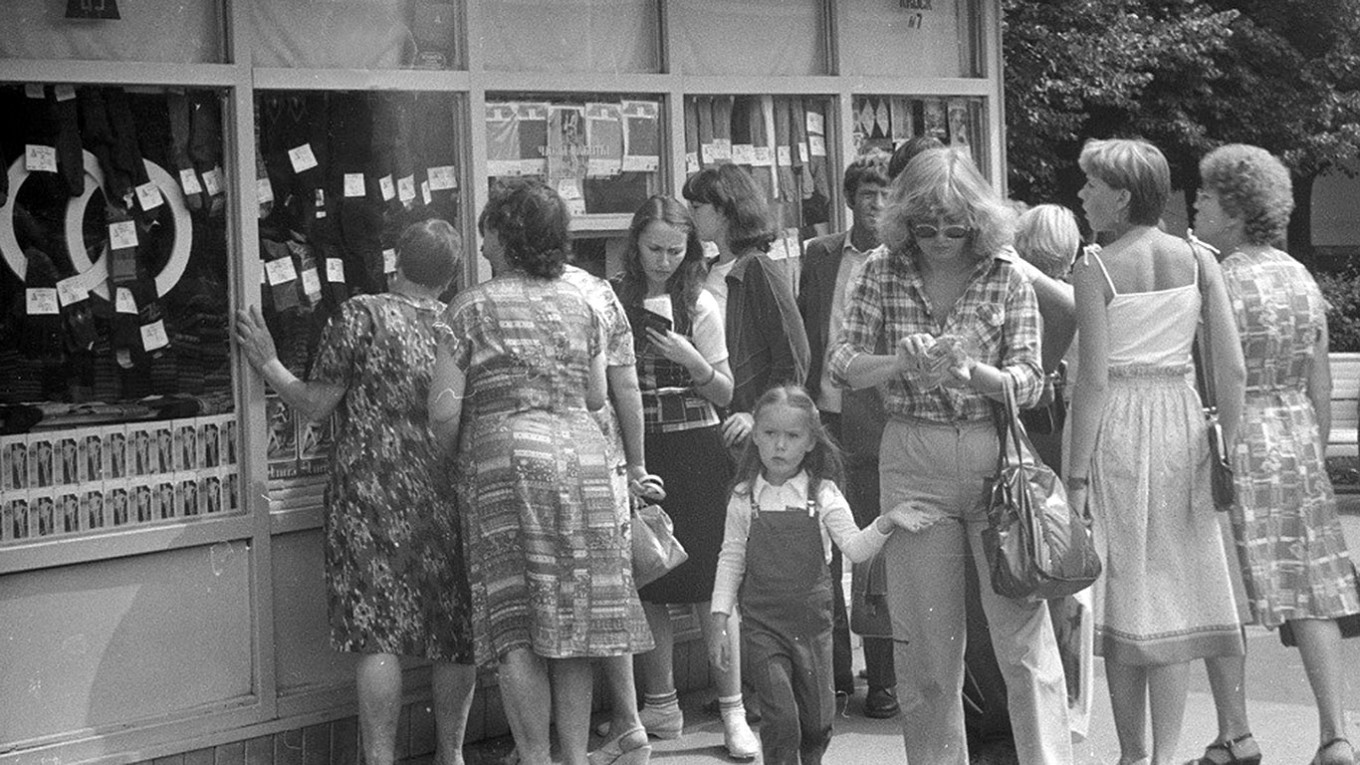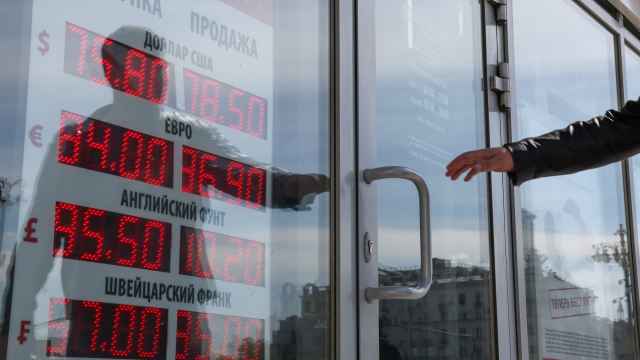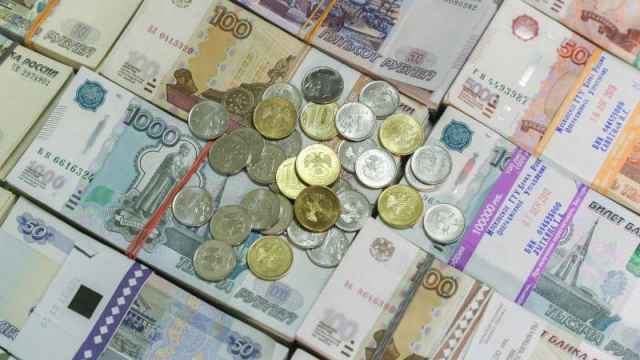Russian citizens may receive a present from the Industry and Trade Ministry for the May holidays. The Russian outlet Izvestia learned that the ministry plans to restrict parallel imports — goods imported without the permission of the intellectual property owner, typically by bypassing official distribution channels — so that only a limited number of brands can enter the country.
The Kremlin will surely justify this by saying they are protecting consumers from low-quality foreign products. That is the same justification Soviet authorities gave for the absence of basic goods from abroad.
My first thought was that this is an effort to entice back Western companies which are holding off on returning to Russia despite friendly noises. In fact, brands that left at the beginning of the war are being asked to return to the country.
But so far, everything we know has come from Russian sources. Russian manufacturers and their lobbyists are loudly arguing that companies that pulled out of the country in 2022 should not be welcomed back — let them pay and repent.
President Vladimir Putin instructed the government to determine by May 15 how foreign companies that left Russia can buy back their assets, many of which have been sold off. The domestic manufacturing lobby appears to have taken the upper hand. The document seen by Izvestia orders the creation of a list of “fugitives,” while returnees will have to buy back their own assets in a way that takes into account the interests of the current owners. Doubtlessly, it will be very difficult — if impossible — to satisfy the demands of anyone who got foreign assets cheaply, or even for free, at the beginning of the war.
Officials claim that these changes will be carried out in the interest of Russian manufacturers and consumers. Domestic producers will not even need to produce anything similar, or even superior to, foreign analogs. It will be enough just to declare their ambitions and they will be able to keep foreign competitors out.
If you doubt that, take a look at the drug market, where import substitution has been taking place for a long time. Patients complain that domestic analogs are less effective and produce more side effects. But that does not stop pharmaceutical companies from being among the largest firms in Russia. Their business model is simple: just buy generic drugs from India and stamp them with a Russian brand.
One only has to look back at the U.S.S.R. to see how this will go. According to state media of the time, the late Soviet Union also had everything! They produced radios, cassette recorders and televisions themselves and were terribly proud of doing so. They even produced jeans and sneakers!
Sure, there were only one or two brands to pick from. But why bother citizens with the problem of choice, especially since there was little difference between the two factories? Of course, people liked to argue about the superiority of the suits from the Bolshevichka factory versus the factory named after Clara Zetkin. But most of them were content to buy from underground workshops.
Only the elite had access to real brands through distributors (oh, what legends there were about the fifth floor of GUM) or could bring them back from foreign business trips. The most shrewd ones got acquaintances at customs and were lucky enough to import Italian jeans and German tape recorders. Soviet schoolchildren who corresponded with “friends from socialist countries” in droves also got in on the act. Polish peers were especially popular: they often sent gum in their letters.
So get ready: we will have to lose a lot of the imports that are still coming into Russia one way or another today. iPhones, for example, will be allowed to be imported for the time being following scandals affecting Russian tablets and other devices. But you can live without Nike sneakers. When it comes to white goods like refrigerators, the Italian Ariston seems to be the only company to have decided to return to Russia. In addition, Russian citizens have halved their spending on Chinese and nominally domestic cars, hoping in vain for foreign cars to return.
Will restricting parallel imports in this way help develop domestic manufacturing? Hardly. The Just Clothes company, which tried to fill the gap left by Uniqlo, is closing all its stores and leaving the market after three years. Although it faced no competitors on the Russian market, the business failed because even when you dominate the market, you need to have qualified staff and automated lines to remain viable. The days of garment factories in Japan, China and even Vietnam and Bangladesh being filled with workers on poverty wages are becoming a thing of the past as they are being replaced with robots. Only a few humans are needed to handle the goods and make sure the automated production lines run smoothly.
It is impossible to find people in Russia who are willing to work for 10 hours a day for such low wages. When it comes to modern equipment, there is neither the money, the opportunity (thanks to sanctions), nor the desire to procure it.
But there is one key difference compared to the Soviet days. This time you will hardly have to be satisfied with shoes from the Skorokhod factory because domestic production will consist of components bought from China and assembled in Russia. If you do not believe me, look at the Moskvich car factory. Many companies will not even bother with that amount of effort. A quarter of domestic shoemakers do little but glue the sole onto otherwise finished sneakers. That way, they do little to spoil the original product, although the sole will fall off eventually. Not that they are buying from China for quality. They are just trying to keep the costs down.
Secondly, this time, you will not have to search public toilets for black market speculators. New services will spring up instead, able to deliver the goods with a tap on a screen. Many of those channels already exist through social networks and online marketplaces. They will have everything covered: customs, tax authorities, and law enforcers. Furthermore, companies that are bigger and more powerful will probably even get themselves an exemption from the Industry and Trade Ministry's list.
The result of this will be that everything becomes more expensive. What choice remains will be limited by the new importers' taste and ideas of beauty. But that is a small price to pay to support domestic manufacturing, right?
A Message from The Moscow Times:
Dear readers,
We are facing unprecedented challenges. Russia's Prosecutor General's Office has designated The Moscow Times as an "undesirable" organization, criminalizing our work and putting our staff at risk of prosecution. This follows our earlier unjust labeling as a "foreign agent."
These actions are direct attempts to silence independent journalism in Russia. The authorities claim our work "discredits the decisions of the Russian leadership." We see things differently: we strive to provide accurate, unbiased reporting on Russia.
We, the journalists of The Moscow Times, refuse to be silenced. But to continue our work, we need your help.
Your support, no matter how small, makes a world of difference. If you can, please support us monthly starting from just $2. It's quick to set up, and every contribution makes a significant impact.
By supporting The Moscow Times, you're defending open, independent journalism in the face of repression. Thank you for standing with us.
Remind me later.






